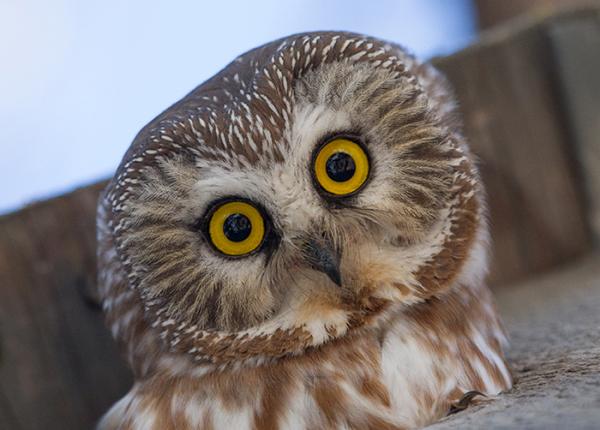Photos by Tim Avery
Found throughout Jamaica, though mostly towards the coast and lowlands.
Eats mostly large insects, but also amphibians, spiders, lizards, and rodents.
The Peregrine Fund had a nice write up on them, which also covers some owl basics, good for anyone newer here.
The Jamaican Owl is a very striking owl. It has dark eyes, a bright rufous colored body marked with fine, black streaks along its breast, a facial disk edged with white and black feathers, and prominent ear tufts. When reading this description of a Jamaican Owl, perhaps you are wondering what a facial disk is and what ear tufts are.
The facial disk, a trait shared by most owls and even some diurnal birds of prey such as the Harpy Eagle and the Northern Harrier, is composed of feathers that form a circle around the bird’s face. The disk can be lifted or lowered at will. When the feathers of the facial disk are raised, they help direct sounds to the birds’ ears, which are located on the sides of its head. To find out how this works, cup your hands behind your ears and listen. You might notice that whatever you are listening to seems louder. The same thing happens when a bird lifts its facial disk. This helps the bird pinpoint prey using its hearing.
Ear tufts, in fact, aren’t ears at all! Though the Jamaican Owl (and all birds) do have ears, they are small openings on the sides of their heads hidden by feathers. Ear tufts are just feathers that grow up on the side of the bird’s head that resemble ears. In fact, they are used to aid in camouflage and even in species recognition.
This owl is nocturnal, meaning it is most active during night time hours.

What a strikingly gorgeous bird! I listened to his sound and my husband thought it was a recording of a Lynx or something.
Yes, it caught me by surprise as well.
The text description I had just said an ascending or descending “whoa” or “whoo,” but it sounds like a snarly cat much more than a bird.
Jerk Chicken
That’s terrible! 😆
Related to Curry Seagul
Fascinating! I always think of owls as cold weather birds. I didn’t realize they lived in the tropics too.
Oh, yes, owls are everywhere but Antarctica!
You will hear much less of jungle owls typically because they are very difficult to study due to the remote and hard to access places they live.
Even some of the very northern owls are hard to study like the Blakiston’s Fish Owl. I was reading about how affordable drones and satellite imaging are finally allowing them to study owls like that. Temps can get well below 0, and going out at night on the snowy mountains is just too dangerous to do, but now tech makes it much more achievable.
Same with the jungles, but on the other extreme. It’s hot and there are different environmental dangers, and since most owls are nocturnal, you’d need to manage that all in the pitch black.
Others are also only found on single islands, like the Principe Scops that was only discovered a few years ago.
Just keep checking back in here, and I’ll show them to you, so you don’t need to worry about all that dangerous adventuring! 😅
Jamaican Owl?
No, I did not make an owl.
Keep trying and you’ll get it eventually!
Here’s a classic guide:

deleted by creator
The color is amazing!
I don’t know why but that sound is incredibly menacing to me.
I don’t blame you.
Most people default to whatever their local pleasant owl sound is, but many sound haunting and alien, especially if you don’t know what animal is making that noise.
Mankind has been amazed and terrified by owls for tens of thousands of years, so you’re in good company.
Who mon
What part of Jamaica?
RIGHT NEAR DA BEACH
BOYEEEEEE
I had to look this one up to see why you’re getting downvoted.
It has been ages since I’ve seen this movie, and I appreciate you pointing out the reference. I think it’s funny in context.
It’s not your fault current Chappelle has decided to ruin all the actual funny things old Chappelle was part of.
Chappelle used to be a treasure.
I’M RICH BBBIIIITTTCCCHHHHH!
Hot hand in a dice game baby girl!
Hey ashy, yall got some redballs?
Bright Orange but cannot be seen because of camouflaging ear tufts
Lol, fair assessment of the photo.
I’m not sure how much this bird’s color is dependant on lighting or processing of photos vs natural variation, but many photos I see aren’t this vibrant.



Ultimately, photos are for people’s pleasure and may not always be what we would see, were we to be there in person.
Instagram vs Reality and all that…
:D Yes, of course. That photo was made with flash so high contrast and vibrant colors.
And maybe the primary prey is not so sensitive in that spectral area.
Anyway, evolution says it works, so who am I to criticise? :) Orange! yay!



